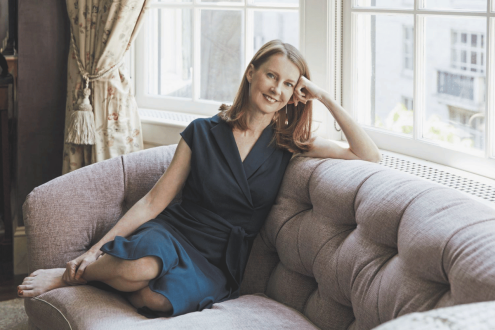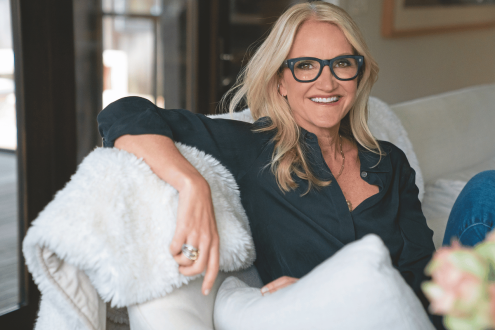My husband hates socialising
Our agony aunt Mary Fenwick offers some words of wisdom on whatever is troubling you

I’ve been married for nearly 20 years and my husband and I have two young children. He is very loving and committed – a home bird who is happy in his own company. But he is not at all interested in socialising – either on his own or as a family/couple. I do feel a little selfish complaining about this when, in so many ways, we’re very lucky and have a happy family life, but I have a wide circle of friends. If we ever get invited to another couple’s house for dinner on our own or to a lunch with another family, we often don’t get invited again! And I’m certain this is because my husband hardly speaks in social situations. He can’t make smalltalk and never shows an interest in other people’s lives. This can come across as ignorant at times but it isn’t that – I feel it’s because he is just uncomfortable. Part of me thinks, if he’s happy then I should just accept the situation, but I do feel like it would be lovely to spend time with other people together. I feel he’d gain a lot from having friendships, too. But he tends to get very upset and defensive if I say anything. Should I just accept the situation and continue socialising on my own? Name supplied
It sounds as if your husband gets his energy from inside his own head, not from other people. I have sympathy with that because when I finally got around to doing the world’s most commonly used psychometric test earlier this year, I realised it’s me who is slightly out of step with the rest of the world, not the other way round.
That test – MBTI, often referred to as Myers Briggs – would call this an introverted preference, and say that it applies to about a quarter of the population. The key words would be inner world, reflection and calm. This could explain why your husband gets upset – you might be rocking his inner world and not in a good way. Read former Wall Street lawyer, Susan Cain (see More Inspiration), who argues that respect for introversion is ‘the next great diversity issue of our time’. Her definition is more of a continuum of people who prefer different amounts of stimulation in their lives; she’d argue that introverts think more deeply and focus on what matters most – relationships and meaningful work.
Eating meals in a group could make an introvert feel physically confronted, for example: face-to-face, with lots of overlapping conversations that never reach a meaningful conclusion. So you could try more side-by-side activities, like going to the movies, or a walk with another family. There may be other people, old or young, in your group of friends who’d find themselves happy to fall in step beside your husband, thinking their own thoughts too.
Why now?
Finally, I wonder what has happened to make you focus on this now. What might have changed for one or both of you to bring this to the fore? Twenty years, two children and a happy husband means you must be getting a lot of things right already – maybe you could find ways for you and your husband to celebrate or at least acknowledge that, just the two of you.
More inspiration:
Read Quiet: The Power Of Introverts In A World That Can’t Stop Talking (Penguin, £8.99) by Susan Cain
Do take the test to discover what your character strengths are at myersbriggs.org
Mary Fenwick is a business coach, journalist, fundraiser, mother, divorcée and widow. Follow Mary on Twitter @MJFenwick. Got a question for Mary? Email mary@psychologies.co.uk, with ‘MARY’ in the subject line









